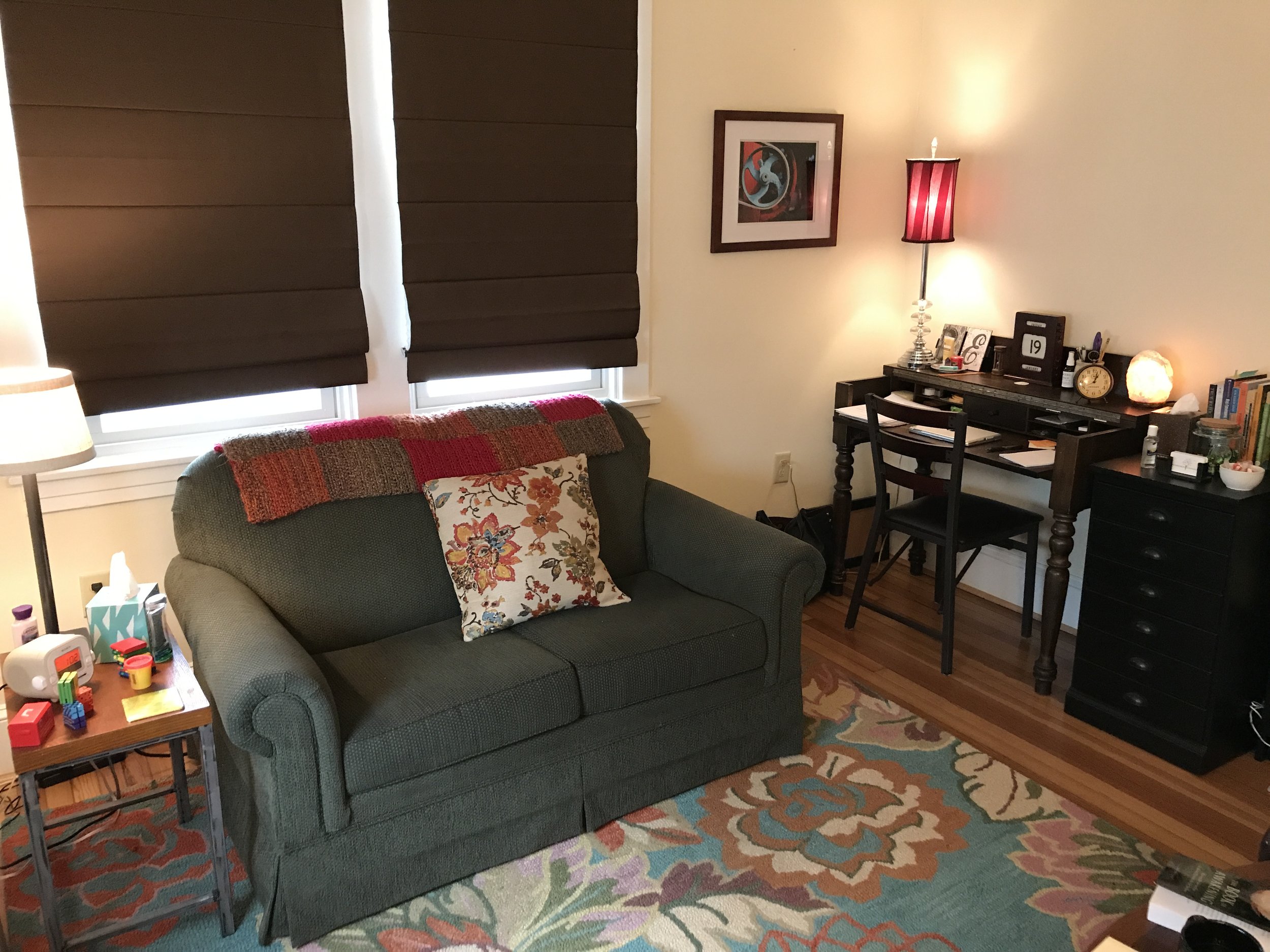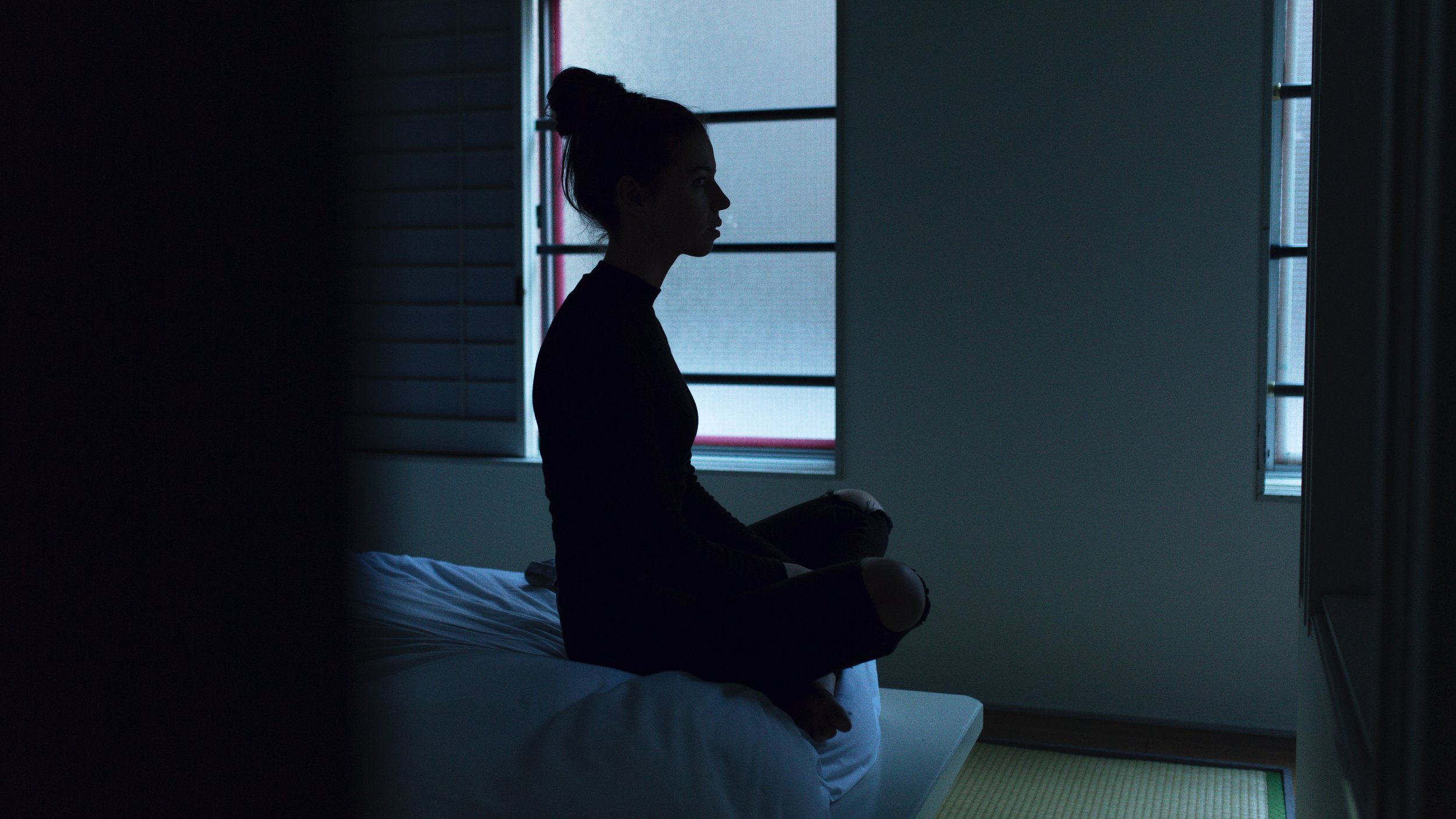My specialty is working with women who have anxiety. But anxiety isn’t just a woman’s issue. Men and women both experience anxiety. The good news is that most anxiety management strategies are gender neutral, meaning anyone can use them! Managing anxiety often starts with good self-care, because if you’re not taking care of your most basic needs, your anxiety isn’t going anywhere.
The First 3 Steps Toward Managing Anxiety
Regular exercise can help with anxiety
Exercise: Exercise is different for everyone. Some of my clients have physical limitations that prevent them from doing strenuous exercise, and some are able to work out intensely every day. I encourage you to do what you can, and do it regularly. That means at least three times a week. Why? Because our bodies want to be used physically. They are hardwired that way. When you exercise regularly, your body releases endorphins, the chemicals that make you feel good naturally.
Nutrition: Our bodies need nutrition, so it’s important to pay attention to what you eat. A balanced diet also balances your body and your mind.
Sleep: Get a good night’s sleep. I can’t say enough about how important sleep is for overall good health, and mental health especially. Research suggests that seven to nine hours of sleep a night is a basic requirement for most adults. Without enough sleep, your body and mind don’t have a chance to “reset.” So if you’re extremely stressed when you fall asleep and you only sleep for a few hours, it’s likely you’re waking up stressed. A good night’s sleep gives your body a chance to recharge and relax. If you need some tips on improving your quality of sleep, check out the National Sleep Foundation.
Daily Anxiety Management Ideas
Day to day, you can do several things to help you keep your stress and anxiety at manageable levels. Here a just a few to get you started:
Constantly searching the Internet can increase anxiety
Stop Googling. If you’re a worrier, chances are you check Google (or another search engine) a lot. Maybe you check out a disease symptoms, or plane accident statistics, or mental health issues. Unfortunately, searching for and finding answers that might confirm your worst suspicions only reinforces your anxiety. It tells your anxious brain that you were right to worry. It might even give you things to worry about that you weren’t aware of before your search. So when you get the urge to Google, put the phone down, walk away from the computer, take a walk, or take some slow deep breaths and allow that maybe it’s OK not to know this time.
Meditate. Your breath is a cheap, easy way to help you manage stress and anxiety. You can use your breath as an anchor in meditation, or use structured deep breathing methods. Either way, your breath is helpful in easing anxiety. Some other great benefits of meditating, according to this article in Healthline, include: stress reduction, promotion of emotional health, enhanced self-awareness, pain management, blood pressure regulation, increased focus, increased positive feelings toward self and others, controlling addictive behaviors.
Move. Anxiety often makes you feels stuck. That’s because when anxiety shows up, you can get caught in the freeze response. You feel powerless or frozen, which adds to your anxiety. I encourage physical movement when you’re feeling stuck. Walking mindfully, moving your arms across your body or swaying can help to activate the part of your brain that helps you feel unstuck.
Calling A Truce With Anxiety
I hope these strategies were helpful for you! I've launched a podcast soon called “Woman Worriers,” where I share more strategies on managing anxiety, but I'm also diving deep into why women are twice as likely as men to experience anxiety. I explore the psychological, biological, social and cultural issues that contribute to women's anxiety. I also share many strategies for anxiety management, like mindfulness, grounding techniques, meditation and other interventions that you can use to help stop fighting against your anxiety and call a truce in the battle.
Elizabeth Cush, LCPC is a therapist and the owner of Progression Counseling in Annapolis, Md. She helps busy, overwhelmed men and women manage their anxiety and stress so they can live their lives with more ease, contentment and purpose. If you'd like to know more about how individual and group therapy can help ease anxiety and stress call me 410-339-1979.
Photo by Justyn Warner & Photo by Annie Spratt on Unsplash










































